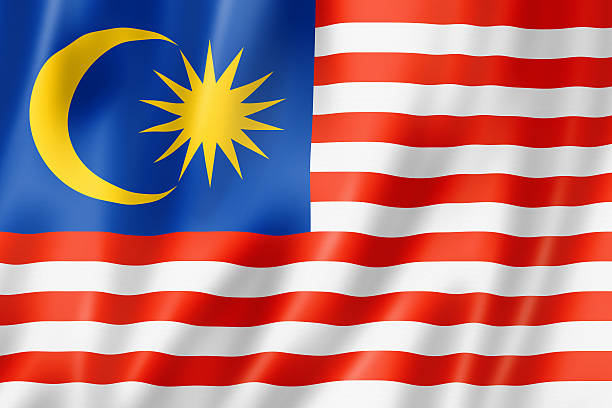Water scarcity is a pressing global issue, affecting billions of people around the world, with countries like Malaysia facing their unique challenges. As demand for water increases due to population growth, industrialization, and climate change, the pressure on natural water resources continues to rise. The specific challenges of water scarcity in Malaysia highlight the urgent need for solutions that ensure sustainable water management.
Malaysia, known for its tropical climate and abundant rainfall, might seem like an unlikely place to face water shortages. However, water scarcity in Malaysia is a growing concern, particularly in regions with poor water infrastructure and where rapid urbanization and industrial activities have put additional strain on water supplies. Addressing water scarcity is not only vital for ensuring access to clean drinking water but also critical for the sustainable development of Malaysia’s economy, agriculture, and industries.
What is Water Scarcity?
Water scarcity refers to the situation where the available water resources are insufficient to meet the demands of the population, industries, and agriculture. There are two primary types of water scarcity: physical scarcity and economic scarcity.
- Physical water scarcity occurs when there is not enough water available to meet demands, either due to overuse, droughts, or environmental degradation.
- Economic water scarcity happens when water resources are available but access is limited due to poor infrastructure, lack of investment, or political issues.
Causes of Water Scarcity in Malaysia
The causes of water scarcity in Malaysia are varied and complex.
- Climate change, which has altered rainfall patterns, resulting in either prolonged dry seasons or heavy rainfall that leads to flooding.
- Population growth is another significant factor contributing to water scarcity in Malaysia.
- Deforestation and land degradation also play a role in reducing water availability.
- Additionally, the over-extraction of water resources by industries such as agriculture, manufacturing, and energy generation exacerbates the problem.
Impact of Water Scarcity in Malaysia: Economic, Social, and Environmental Effects
The impact of water scarcity in Malaysia is felt across various sectors with economic, social, and environmental consequences. Economically, agriculture and industry are among the hardest hit. Malaysia’s agriculture, which is heavily dependent on water for irrigation, faces reduced productivity during periods of water shortage. Socially, water scarcity in Malaysia affects access to clean drinking water for households, especially in rural and underserved urban areas. Environmentally, water scarcity leads to the degradation of water sources such as rivers, lakes, and groundwater reserves.
Strategies for Mitigating Water Scarcity in Malaysia
To address water scarcity in Malaysia, a combination of government initiatives, technological innovations, and community involvement is essential. The Malaysian government has implemented policies aimed at improving water management and conservation. Technological solutions also play a key role in mitigating water scarcity. In urban areas, the development of efficient wastewater treatment and recycling systems helps reduce the demand for freshwater, allowing for the reuse of treated water for industrial and agricultural purposes.
How Ion Exchange Helps Address Water Scarcity in Malaysia
One of the leading companies addressing water scarcity in Malaysia is Ion Exchange. By providing advanced water treatment and recycling solutions, Ion Exchange plays a crucial role in helping industries and communities manage their water resources more sustainably.
It offers a compact, fully automated twin-bed deioniser system with advanced counter-flow ion exchange technology. Designed for rapid regeneration within 35 minutes, it ensures continuous high-quality deionized water with minimal waste. The skid-mounted, corrosion-resistant frame includes a stainless steel pump that aids in service and provides recirculation options for optimal water quality. With a PLC-controlled cycle and a 10.4″ HMI display, it operates at low cost and high efficiency, achieving water conductivity between 1–10 μS/cm, ideal for applications demanding superior treated water.
-
INDROMATIC RO SERIES
The escalating scarcity of quality water has heightened dependence on groundwater sources, necessitating effective treatment solutions for brackish or saline water. With Ion Exchange’s INDROMATIC RO SERIES, industries are leveraging advanced reverse osmosis membrane technology. Widely adopted globally, this system efficiently purifies brackish water for industrial and potable use. The INDROMATIC RO SERIES ensures the production of water with significantly low dissolved solids while eliminating particulate, colloidal, and organic matter. Noteworthy advantages include its status as the most economical and efficient method for dissolved solids removal, operational simplicity with a compact footprint, adept handling of fluctuations in feed water Total Dissolved Solids (TDS), and assured accessibility to spares and services with a short delivery period.
Ion Exchange provides innovative water recycling solutions with a range of advanced products designed to meet diverse treatment needs. These include continuous media filters, which efficiently remove suspended solids and impurities; advanced oxidation systems, which break down complex contaminants using powerful oxidation processes; and membrane systems for high-performance filtration, ensuring clean and reusable water. Together, these technologies enable industries to recycle water effectively, reduce waste, and promote sustainable water management practices.
Conclusion
In conclusion, addressing water scarcity in Malaysia requires a multi-faceted approach that includes government intervention, technological innovation, and community involvement. Understanding what water scarcity is and the causes of water scarcity is the first step in finding effective solutions. By adopting water conservation practices, improving infrastructure, and investing in sustainable technologies, Malaysia can reduce the impact of water scarcity and ensure long-term water security for its population and industries.
Connect with Ion Exchange experts to learn more about wastewater solutions in Malaysia.


